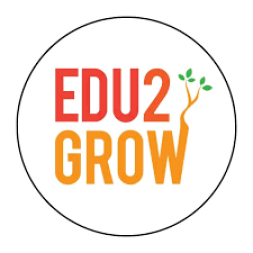
Digital tools for social entrepreneurship - Training Course In Malaga, Spain - February 2025
Digital skill and competences, Digital transformation, planning and implementation, Entrepreneurial learning – entrepreneurship education, Equal access and transition to labour market, Inclusion
At your request, the courses can be structured for a different schedule (5 or 7 training days).
Course fee: According to the Erasmus+ guide, 80 euros / training day
Description
Objectives:
– equip adult education trainers with the necessary knowledge, skills, and attitudes to effectively navigate organizational culture, promote social entrepreneurship, integrate AI into entrepreneurship practices, and disseminate project outcomes using AI tools within the context of Erasmus+ projects. – Gain insight into the importance of organizational culture and its impact on working with international stakeholders. – Learn effective communication and connection strategies for working with diverse stakeholders. – Explore team-building techniques to improve organizational culture and address stereotypes and prejudices in international settings. – Familiarize with the principles of social entrepreneurship and successful social enterprises. – Identify social issues in the local community or region and develop business model canvases for social enterprise ideas. – Learn stakeholder and client management techniques to connect business with social impact. – Develop skills in planning graphical content and videos across social media platforms to promote social issues and enterprises. – Enhance abilities in choosing and enhancing photos for social impact and creating impactful scripts for social media videos. – Engage in peer evaluation of created materials to refine social media strategies. – Review case studies of AI-driven social entrepreneurship initiatives and analyze their impact on education. – Discuss challenges and ethical considerations associated with AI in entrepreneurship. – Draw inspiration from case studies to incorporate AI into entrepreneurship practices. – Discuss AI-powered platforms and tools for project dissemination. – Explore strategies for creating engaging project presentations and optimizing project content for search engines and social media. – Practice disseminating project materials using AI tools to maximize reach and impact.
Learning objectives
Learning outcomes:
– Gain understanding of organizational culture, including Hofstede dimensions and its impact on international settings.
– Learn about social entrepreneurship principles, successful social enterprises, and stakeholder management techniques.
– Acquire knowledge of AI-powered social innovation through case studies and its potential impact on entrepreneurship.
– Develop openness and adaptability to diverse organizational cultures and international stakeholders.
– Cultivate a customer-centric approach and empathy towards stakeholders and clients in social entrepreneurship.
– Embrace innovation and ethical considerations in integrating AI into entrepreneurship practices.
– Develop communication and networking skills to effectively work with international stakeholders.
– Enhance team-building skills to improve organizational culture and address stereotypes and prejudices.
– Acquire project management skills to develop business models and implement CRM in social enterprises.
– Gain proficiency in creating engaging graphical content and videos for social media to promote social issues and enterprises.
– Develop critical thinking and analytical skills to evaluate the impact of AI on entrepreneurship and address associated challenges.
– Acquire skills in planning and executing dissemination and valorization activities using AI tools for Erasmus+ projects.
Methodology & assessment
• Experiencing: different educational settings, different non formal education methods (role play, simulation game, exercises etc.)
• Reflecting: on the methods and its impacts, on the power and limits of non-formal education, on building a pedagogical process etc.
• Transferring: to the own reality of participants, in order to improve ways of working with their students
• Sharing: different perceptions, current situations and experiences.
• Developing: the building capacity of the participants (to be transferred to their students) by including them in the decision process of the training course designing
• Lessons learnt and best practices on non-formal education in school activities
Materials, digital tools & other learning resources
Training course support
Training preparation
Paper, pens, crayons.
The participants are required to bring their own laptop.
Certification details
EUROPASS MOBILITY DOCUMENT
CERTIFICATE OF ATTENDANCE
Pricing, packages and other information
-
Price:720Euro
-
Course package content:
Coffe breaks
Training materials
-
Additional information:Description of the services and activities included in the course package (such as accommodation, meals, transport) or available at extra cost.
-
Cancellation & changes:
Free cancellation 30 days before the begining date.
-
Additional information:The options and conditions for change and cancellation, and the policy in case of unforeseen circumstances (force majeure).
Additional information
-
Language:English
-
Target audience ISCED:Early childhood education (ISCED 0)Primary education (ISCED 1)Upper secondary education (ISCED 3)
-
Target audience type:TeacherHead Teacher / PrincipalTeacher Educator
-
Learning time:25 hours or more

